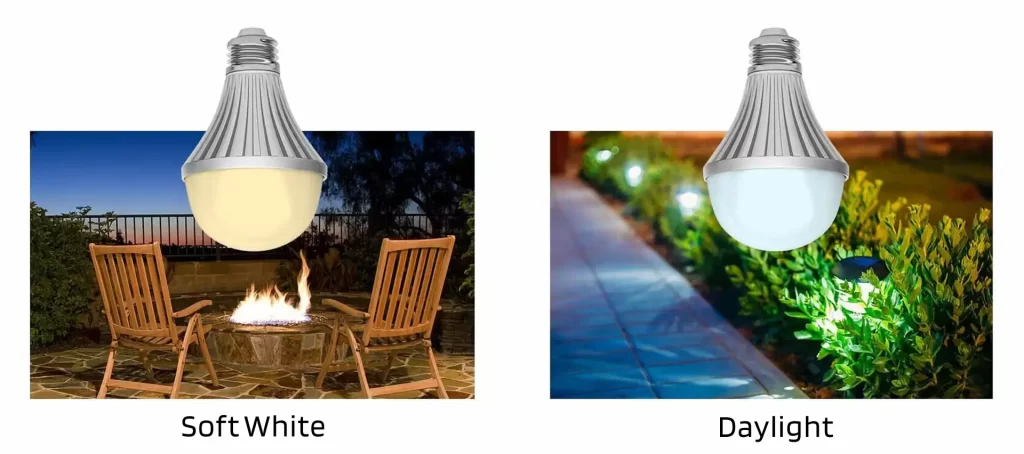
Color temperatures like soft white vs daylight are used in different places. Another way to put it, would be warm vs cool. Or even yet another way, 2700K vs 6000K.
Obviously, we’re discussing two very different color temperatures that sit on opposite sides of the scale. The Kelvin scale goes from 1,000K up to 10,000K. The lower the number the more yellow tones. The higher the number, the more blueish tones.
Soft White = 2700K-3000K
Daylight = 5500K-6500K
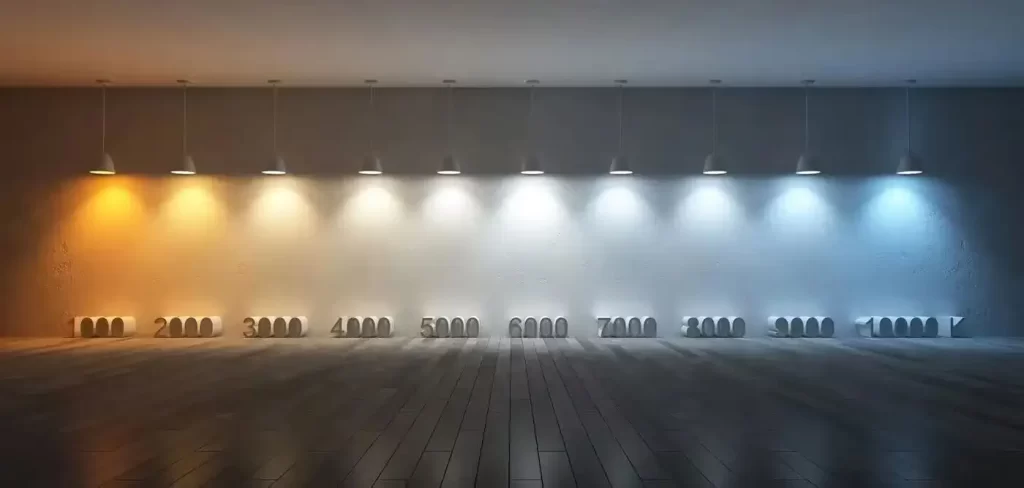
Next, we will analyze what is soft white? and what is daylight? the difference between soft white vs daylight?
What Are Soft White Bulbs?
The soft white bulb has a warm color temperature in the Kelvin temperature range. If you want soft lighting then it might be the right choice. The bulbs have low color intensity and can provide overall lighting for your entire home.
What Are Daylight Bulbs?
When it comes to daylight bulbs, they are very light and have a calming effect. It has a broad spectrum which allows it to produce a high color temperature. These types of bulbs have a color temperature of 5000 to 6000K. Plus, it provides a natural finish without any strain on the eyes.
Soft White vs Daylight
We can distinguish between soft white and daylight by the following points.
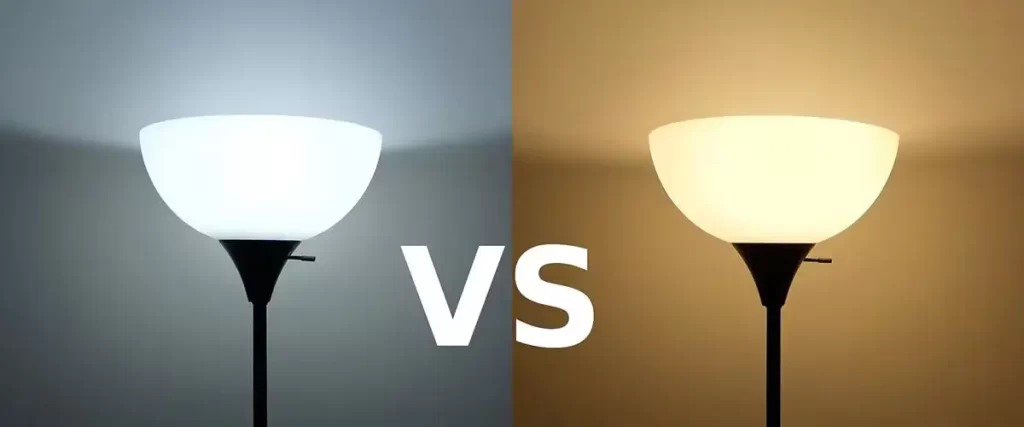
Lighting Color Soft White vs Daylight
Soft White: It will have more warm tones, usually in the yellow range. Soft white is ideal for residential settings and has an earthy tone.
Daylight: Quite cooler as it has more white and blue tones. Daylight is ideal for commercial environments and has more of a blue hue.
If you’re undecided, you can compare the 3000K vs 4000K options and the 2700K vs 3000K.
Application Soft White vs Daylight
There is still a difference between these two color temperatures, but most customers find these color temperatures very suitable for some applications, as follows.
Soft White is ideal for:
Residential
Kitchen
Bedrooms
Bathrooms
Closets
Under Cabinets
Daylight is ideal for:
Commercial
Garages
Display Cases
Offices
Signage
Soft White or Daylight for Kitchens
The kitchen is where you make your food. So proper lighting is required and daylight bulbs will be the right choice. Look for “cool white” lights in the 4000K-5000K range. This is generally better than daylight color at 6000K, which is harsher and often has a blue tinge.
Soft White vs Daylight for Bathrooms
The kitchen is where you make your food. So proper lighting is required and daylight bulbs will be the right choice. Look for “cool white” lights in the 4000K-5000K range. This is generally better than daylight color at 6000K, which is harsher and often has a blue tinge.
Soft White vs Daylight for Bedrooms
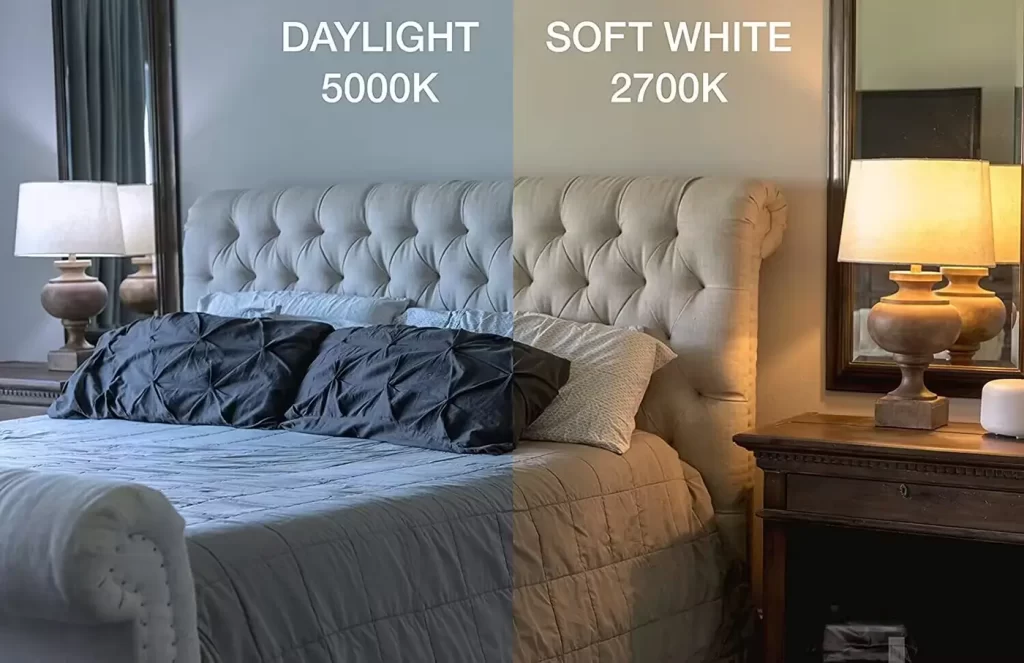
Our bedrooms are places for relaxation and rest. So soft white light or even warm yellow light is the preferred color temperature for bedrooms. Look for a color temperature of 2000K to 3500K for your lights. Soft white bulbs will bring you a cozy feeling. It can be a perfect choice for a bedroom as it provides you with a relaxing feeling.
Soft White vs Daylight for Living Room
The living room is the place to gather with friends and family. So creating a cozy feel with soft white bulbs is perfect. The warm color temperature makes it ideal for living rooms.
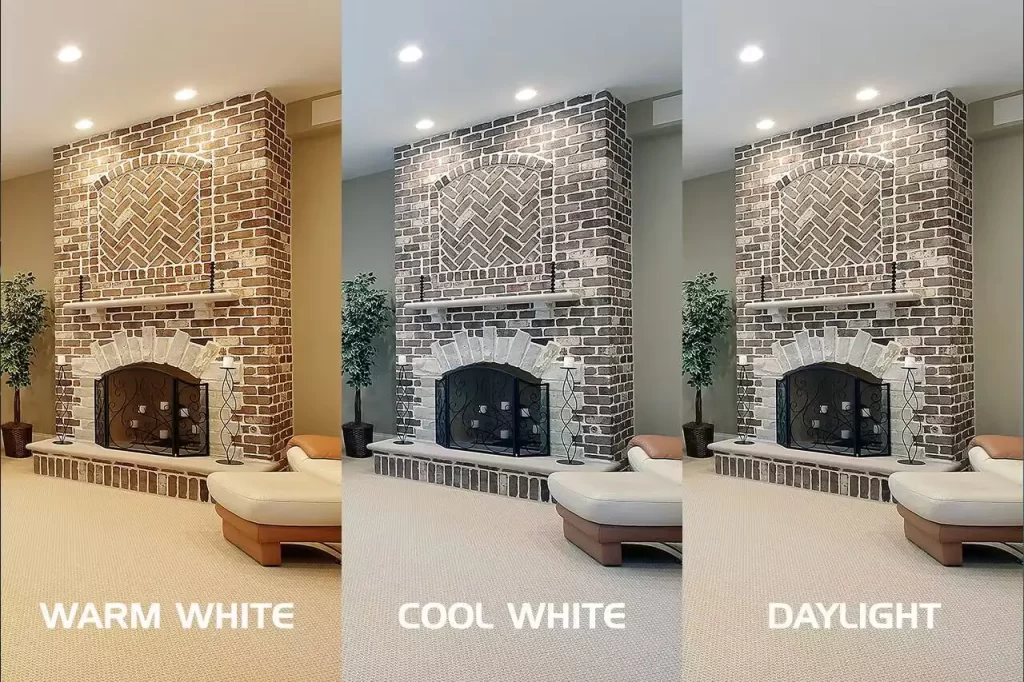
Conclusion
One of the major differences between soft white vs daylight bulbs is the color temperature they offer. Soft white bulbs offer a better feeling making them ideal for bedrooms and living rooms. Daylight bulbs can be great to see better details for improving productivity making them great for kitchens and offices.
There’s no one right answer. Sure, there are some good guidelines to follow, but ultimately it’s up to your personal preferences.
FAQs
The soft white provides better comfort and warmth, and daylight provides better brightness and energy.
Soft White is the yellowest of all LED bulbs, richer in yellow and red, resulting in a warmer, more pleasant glow.
Daylight bulbs are a good choice for kitchens, bathrooms, and home offices.
Soft white to golden light up to 2,700 Kelvin is ideal for a welcoming ambiance. If the light is too bright, food can appear washed out.
Natural light provides the lightest, and it can use more watts because it’s brighter and cooler.
Daylight is closer to natural light, so it is good for eyesight and reduces eye strain caused by the light produced by computer and phone screens.
